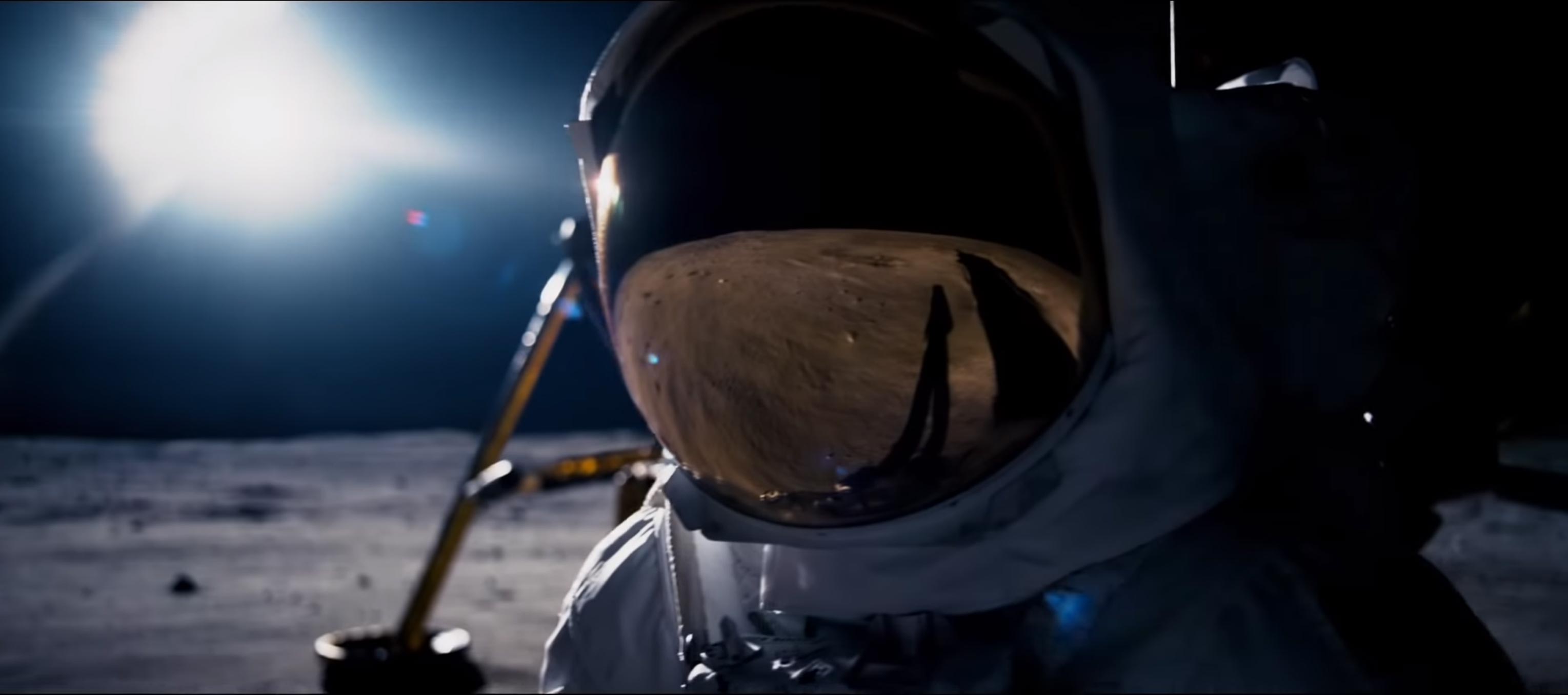Damien Chazelle sure knows how to cash in Oscar clout. Fresh off his La La Land win as director, Chazelle decided to direct a movie about the moon landing. That’s a big swing for such a young director, however, his previous efforts shows he knows how to put in the hard work to create a great film, and First Man is another wonderful entry into the burgeoning director’s already stellar resume.
I said First Man was about the moon landing, but it’s really about Neil Armstrong’s (Ryan Gosling) journey to the moon. We see how tragedy shaped his home life with his wife Janet (Claire Foy) and from that he decided to become an astronaut. From there, Chazelle takes us on Armstrong’s personal journey to captaining the famous Apollo 11 mission, which also includes a history of the trials and tribulations of America’s space program.
It’s easy to see why a Neil Armstrong biopic would appeal to Chazelle. The man famously was a meticulous but gifted engineer, slavishly following the process to achieve something truly difficult, much in the way I imagine Chazelle sees himself when making a movie. As played by Ryan Gosling, the Armstrong we see is everything you’d want in an astronaut: an engineer who’s emotional range on a scale of 1 to 10 doesn’t register because there is no range, and he has the ability to think and solve problems when chaos occurs around him. However, that means that Armstrong internalizes all of his feelings, only to express them privately. When any trauma threatens to challenge his steely demeanor, Armstrong leaves the situation and lets the feelings out privately. First Man shows just how much trauma Armstrong experienced in this 8 year window, losing a child and several friends to terrible accidents or disease. However, when forced to act publicly, Armstrong appears almost robotic, giving canned scientific answers to every question when the press demands a sound bite. And yet, as played by the talented Gosling, we see that these tragedies help inform and drive Armstrong to be better. There’s a scene where Janet tells Neal, after his NASA hiring, that this will be a fresh start, and Neal says “Are you sure?” Armstrong doesn’t want to forget his feelings, but he wants to use them as fuel for his own personal rocket-like drive to the moon.
Chazelle helps Gosling on this quest by demythologizing NASA for the audience. Most people watching this movie have no idea how fragile the space missions were, basically on a knife’s edge with how easily they could fall apart. The best scenes of the movie are showcasing the claustrophobia and archaic looking panels and tiny windows of each ship, and how one little error can send the ship spiraling out of control. Chazelle via one of the few necessary uses of shaky cam, shows us how violent and unforgiving space can be and how chaotic a shimmy or shake is when there’s very little you can do to regain control. You certainly come out a believe in Armstrong, since you’re dazed and confused during these moments of chaos and terror and he’s somehow cool as a cucumber. Chazelle points out that all of NASA’s lead up to the Apollo 11 mission was a series of failures, both small and large, and that the engineers learned from their mistakes to successfully get to the moon. The lead up to the moon landing is becoming a Chazelle staple, using propulsive, harrowing music to keep the audience on their toes until the moment of absolute tranquility from success (Both La La and Whiplash did this). The Eagle has landed indeed.
I contend that Gravity and Apollo 13 still represent the best space exploration films that Hollywood has put out. However, First Man is only a small step below those. What’s more important is that Damien Chazelle continues to prove that it’s going to be a fun competition to see if he or Ryan Coogler can become the best director of their generation. Both are 3 for 3. Chazelle’s got the Oscar, but Coogler has Rocky Balboa and Black Panther. This is tough!

